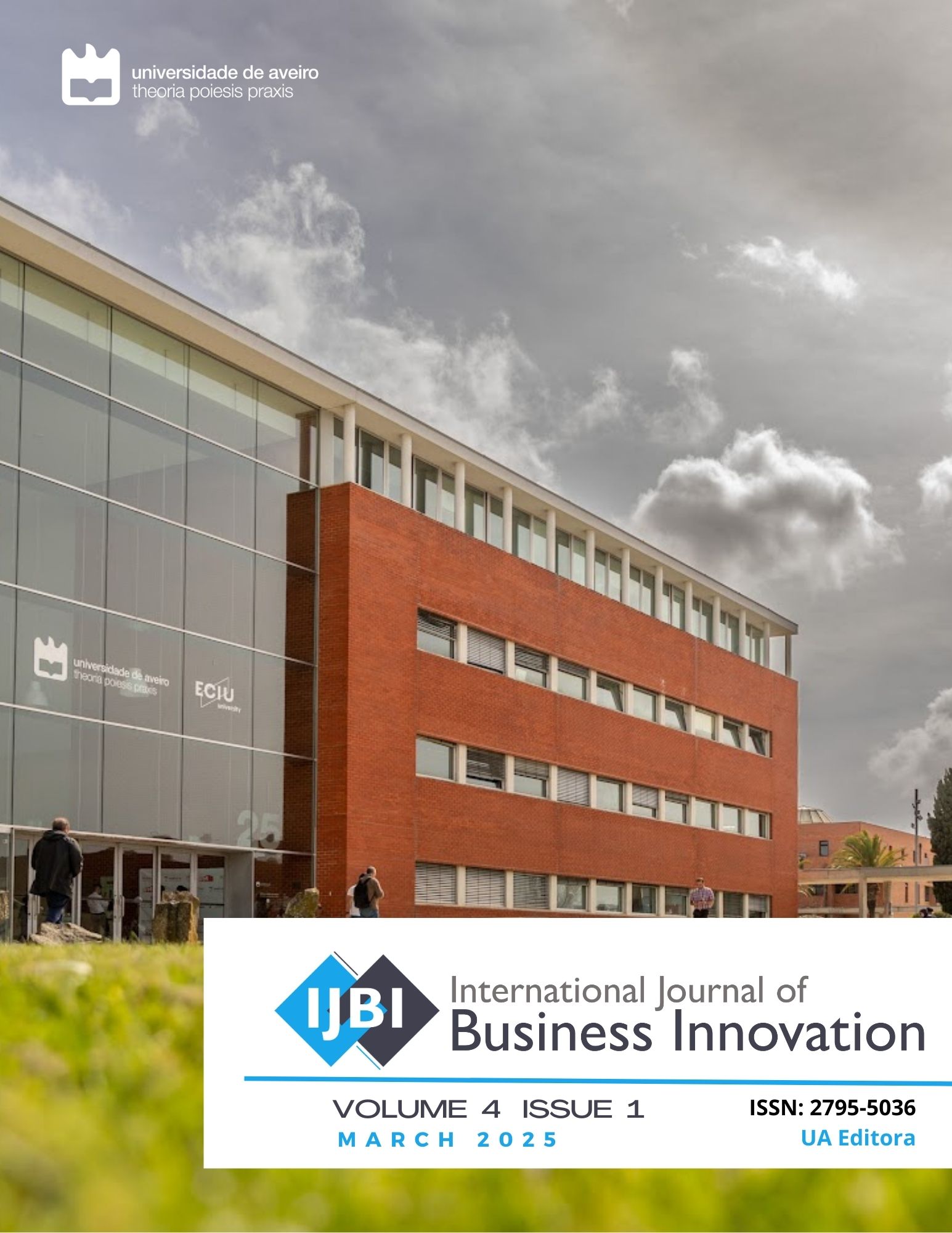Editorial
DOI:
https://doi.org/10.34624/ijbi.v4i1.39722Keywords:
EditorialAbstract
It is with great pleasure that we present the first issue of Volume 4 of the International Journal of Business Innovation. This edition continues our commitment to promoting high-quality, interdisciplinary research that reflects the dynamic challenges and opportunities in business, management, and public administration.
In this issue, we feature three insightful articles that explore distinct yet interrelated themes, ranging from audit quality and healthcare governance to environmental sustainability in public institutions.
The article “The Auditor's Opinion in the Health Sector: Evidence from Portuguese Public Hospitals” by Maria de Fátima Simões and Carla Carvalho explores the nature of audit opinions issued for public hospitals in Portugal between 2018 and 2021. The findings reveal a predominance of qualified opinions concerning assets, investments, and equity. The study contributes to academic and practical knowledge by identifying critical areas of risk in public healthcare auditing and suggesting improvements in transparency and internal control systems.
Next, the article “Trends and Gaps in Audit Quality: A Bibliometric Analysis” by Cristiano Bento, Helena Inácio, and Elisabete Vieira offers a comprehensive bibliometric overview of research in audit quality from 1999 to 2022. Through analyzing over 1,500 articles, the authors highlight key topics such as audit independence, corporate governance, and the impact of regulatory frameworks. The study identifies emerging research gaps and proposes future directions focused on technological innovations and ESG auditing practices.
Finally, in “Assessment of Solid Waste Management at the Desembargador Rodolfo Aureliano Courthouse in Search of Environmental Sustainability: Perceptions and Practices”, authors Tadeu José Gomes Reis, Marcia Cristina de Souza Matos Carneiro, Maria das Neves Gregório, and Sonia Maria Lima Silva examine the environmental awareness and waste management practices within a Brazilian courthouse. Combining qualitative and quantitative methods, this study reveals the strengths and limitations of the institution’s sustainability efforts and offers valuable recommendations to enhance civic environmental responsibility.
We sincerely thank the authors and reviewers whose efforts ensure our publication's scientific integrity and impact. This issue exemplifies our mission to bridge research with practice and to support innovation in diverse organizational contexts.
We hope these contributions will inspire new inquiries and serve as a valuable reference for researchers, practitioners, and policymakers worldwide. We look forward to continuing this journey of discovery and innovation with our readers in future issues.
References
Downloads
Published
Issue
Section
License
When submitting an article to the IJBI, authors certify the following clauses:
-
Originality and single submission– The contents presented in the article have not been published previously in whole or in part, and were not submitted or are not under active consideration elsewhere prior IJBI decision. The article must be authentic and does not contain plagiarism.
-
Authorship– All authors reviewed the article, agreed with its content, and agreed to its submission to the IJBI.
-
Conflicts of interest– Any conflict of interests must be declared. If authors have no declaration, it should be written (in the acknowledgments section): “The authors declare no conflict of interests”.
-
Ethics committee and informed consent(if applicable) – The research must be approved by an independent ethics committee and subjects gave their informed consent before they were enrolled in the study.
- Authors retain copyright and grant the journal the right of first publication with the work simultaneously licensed under a Creative Commons CC BY 4.0.



